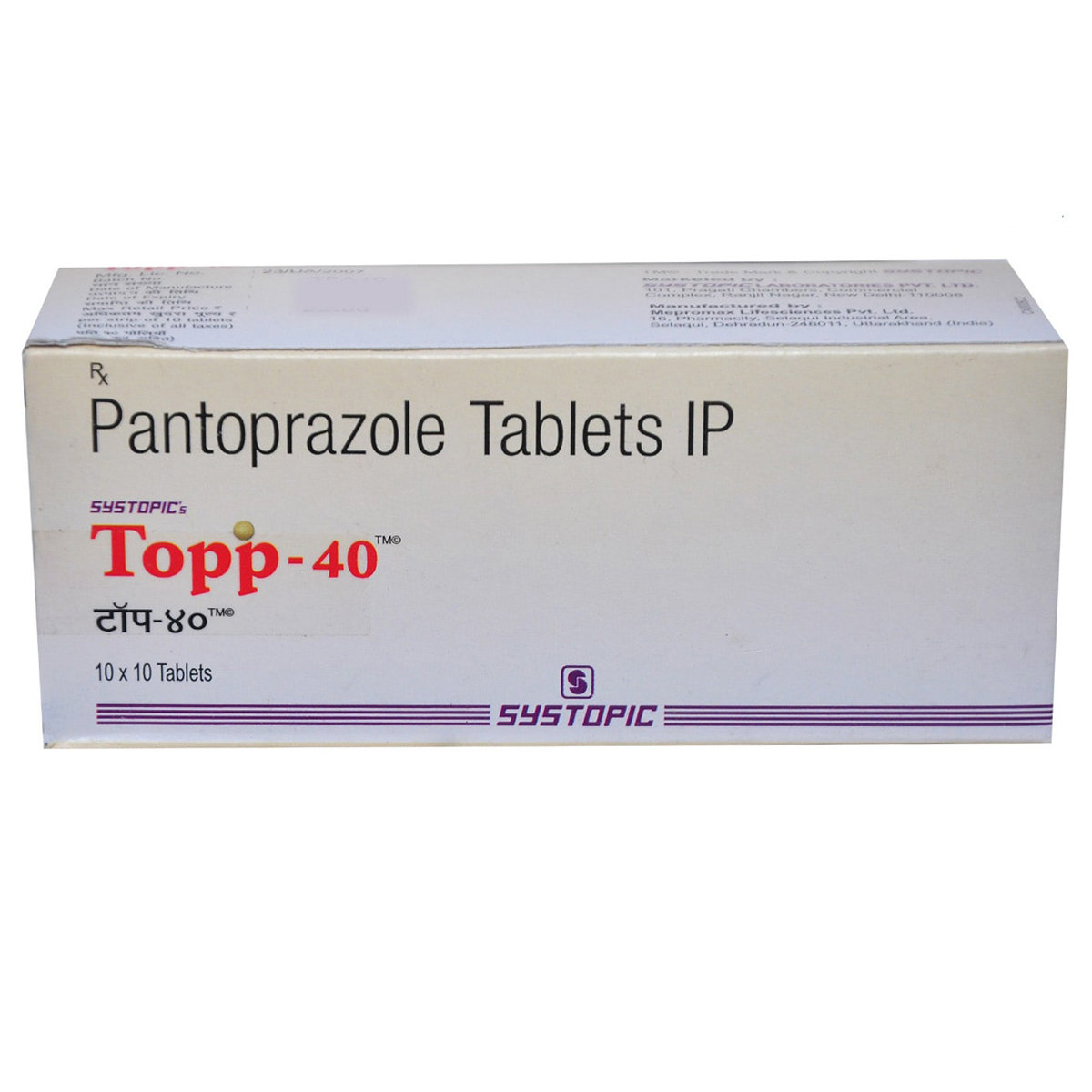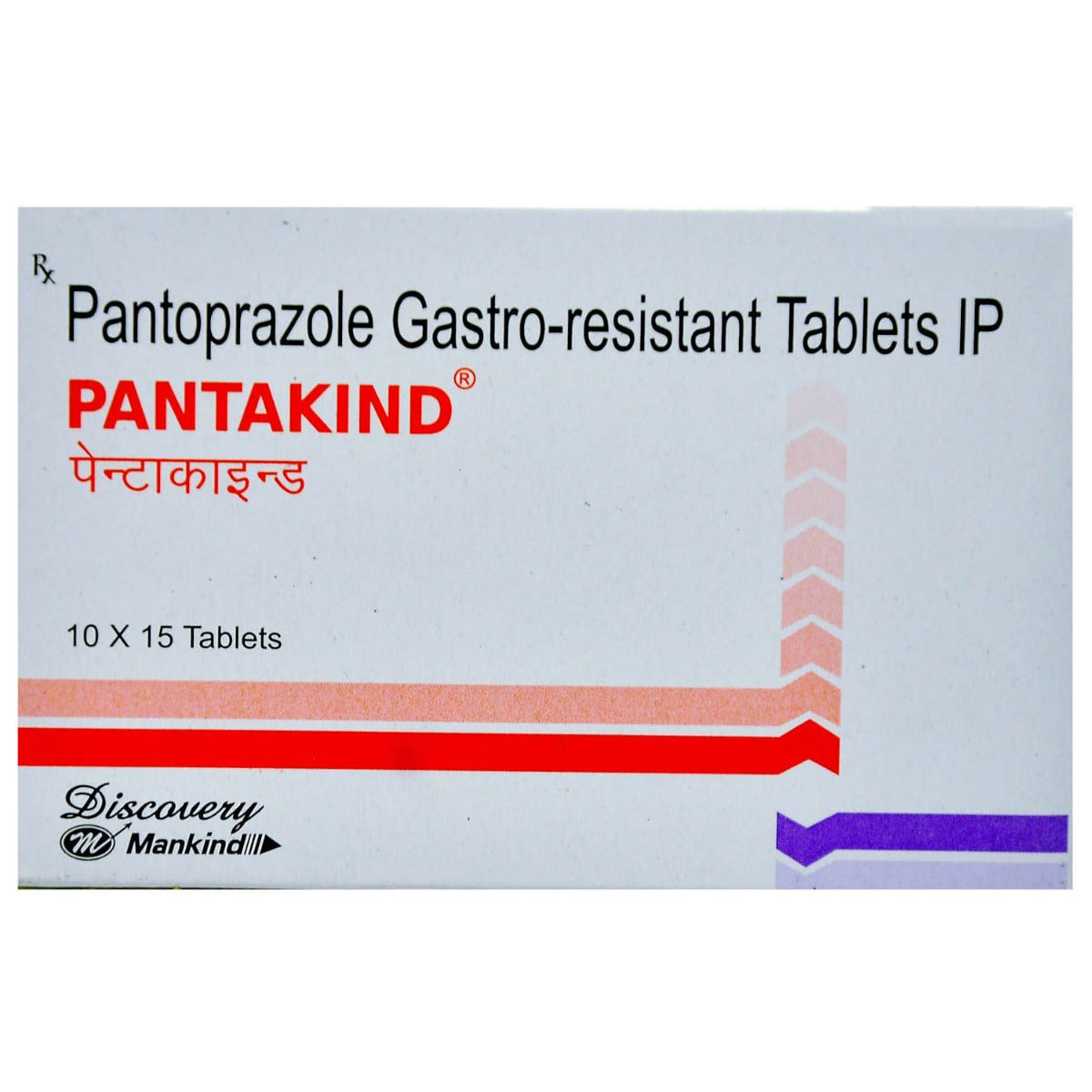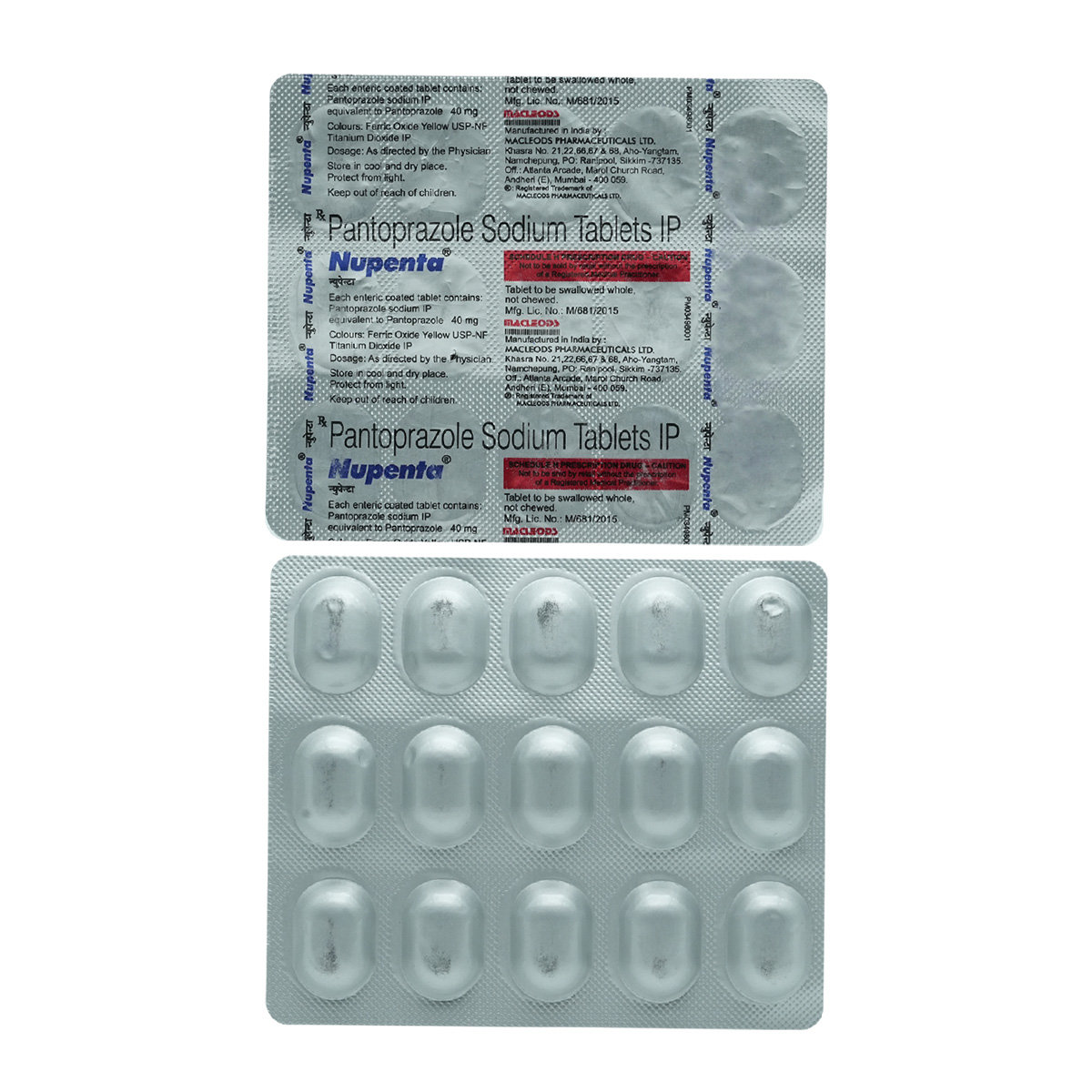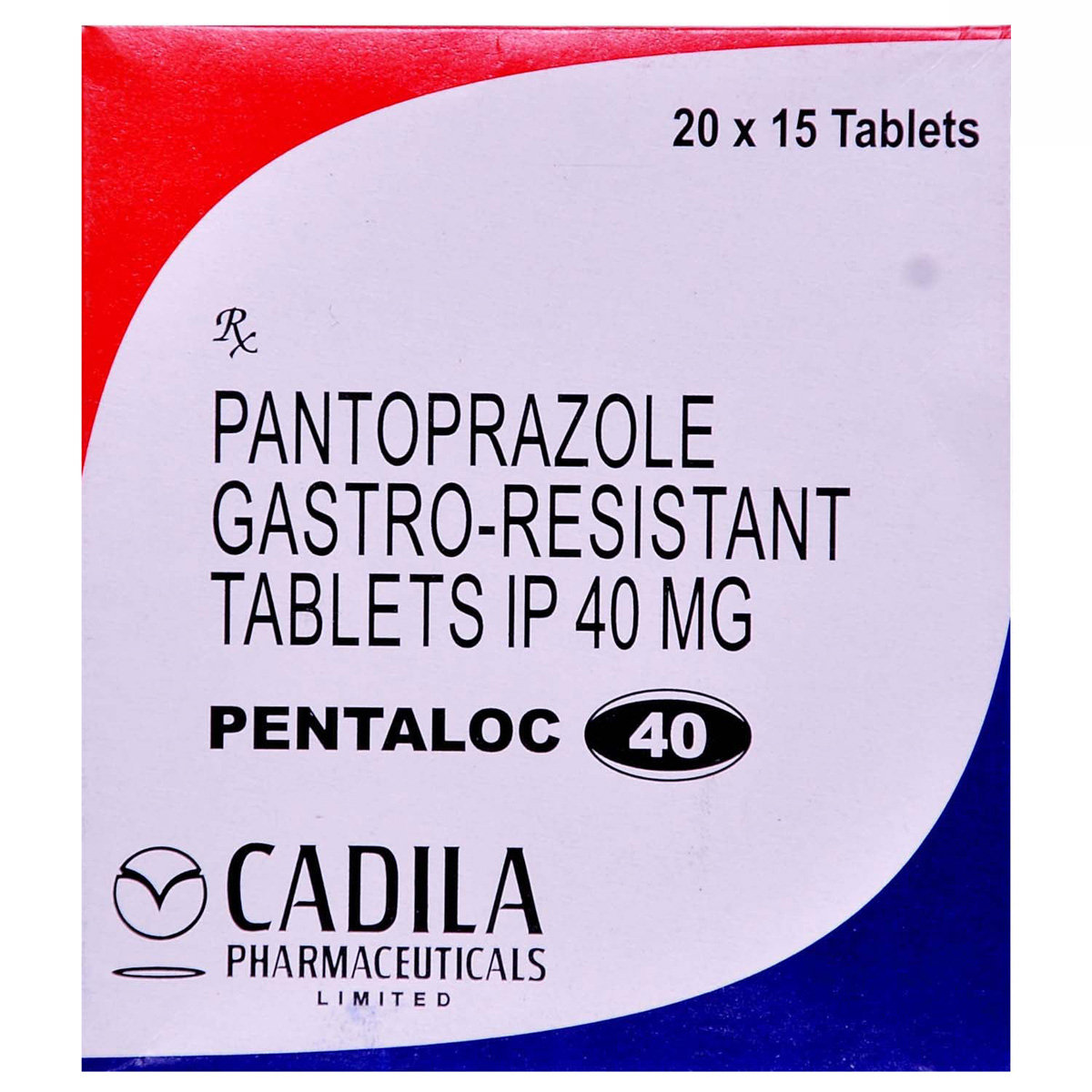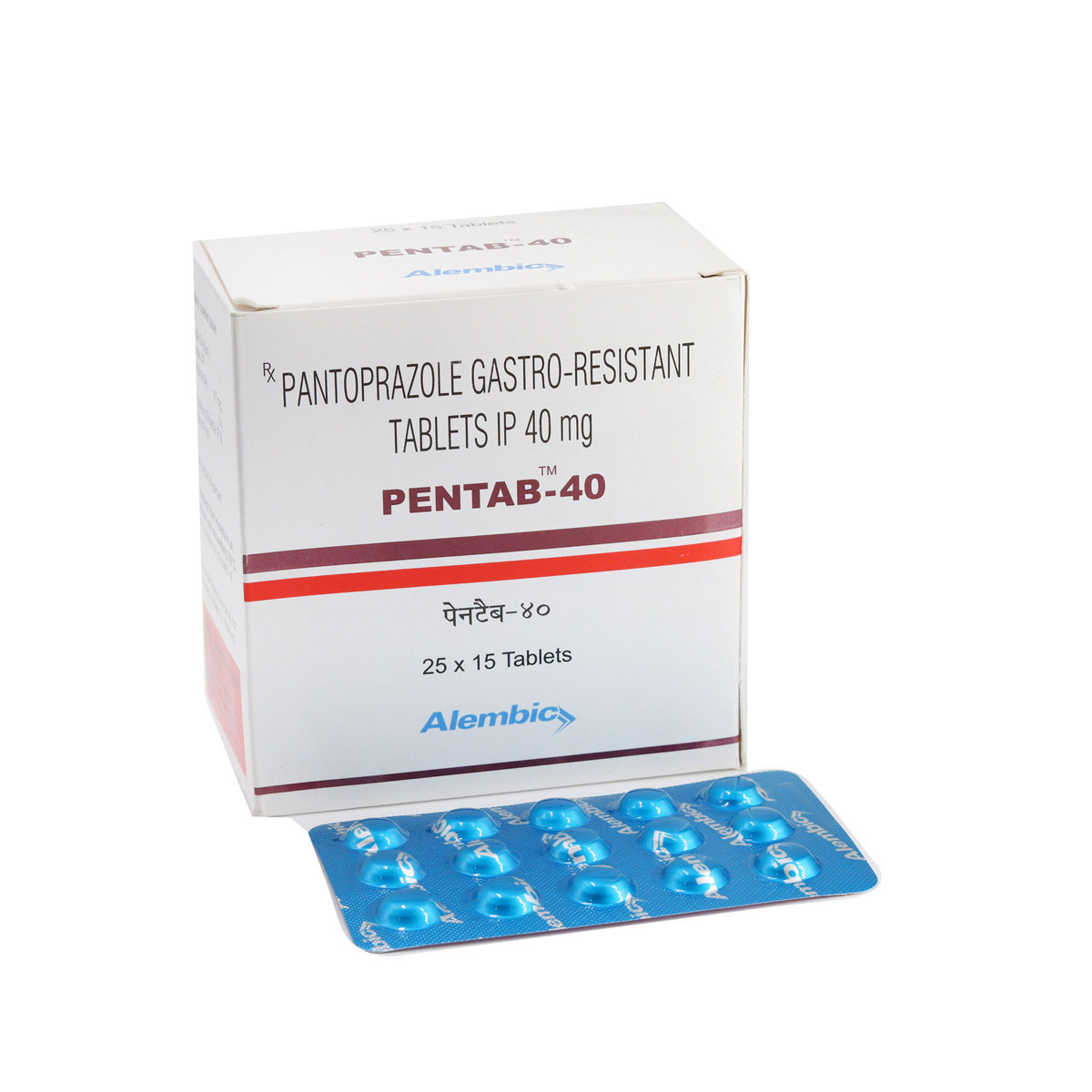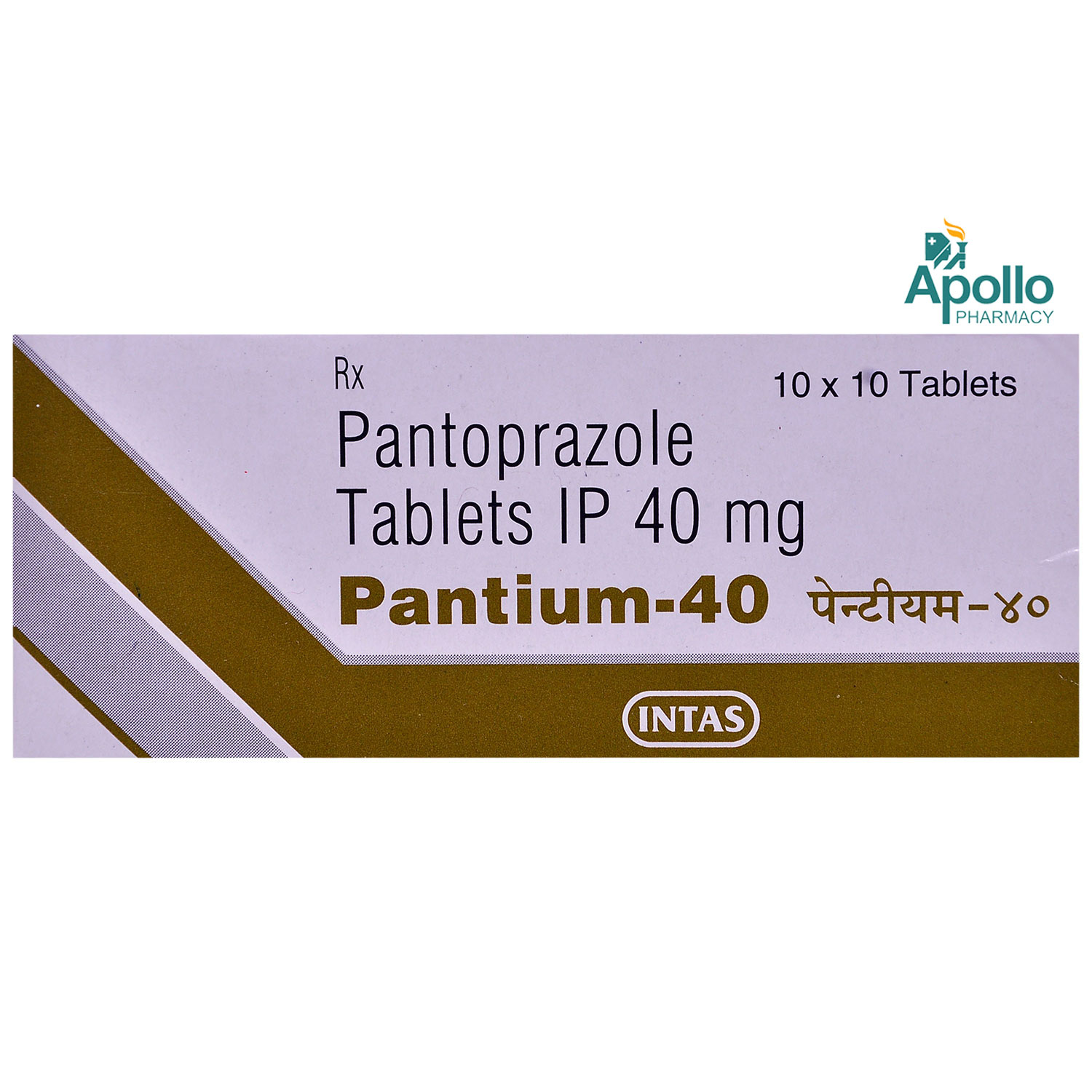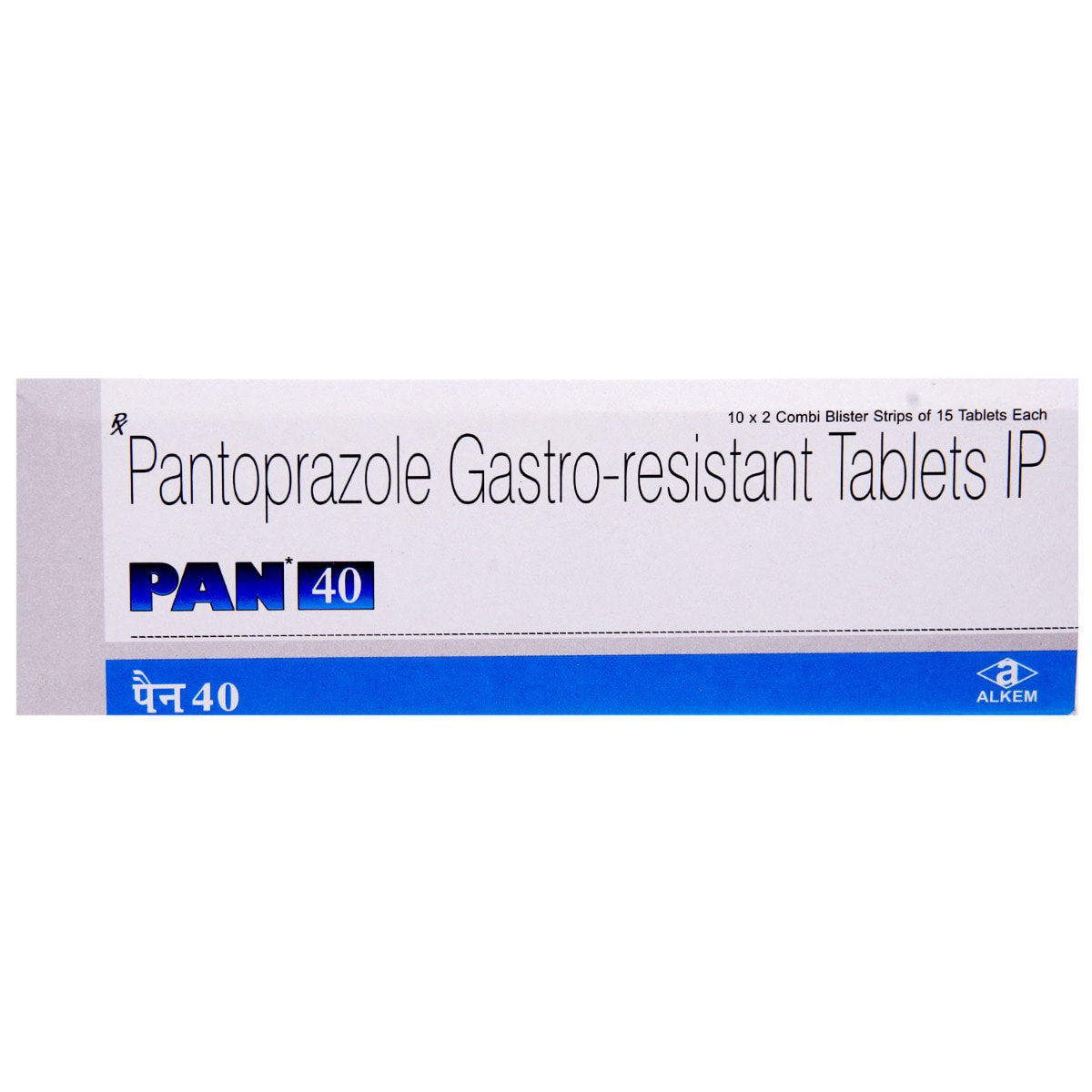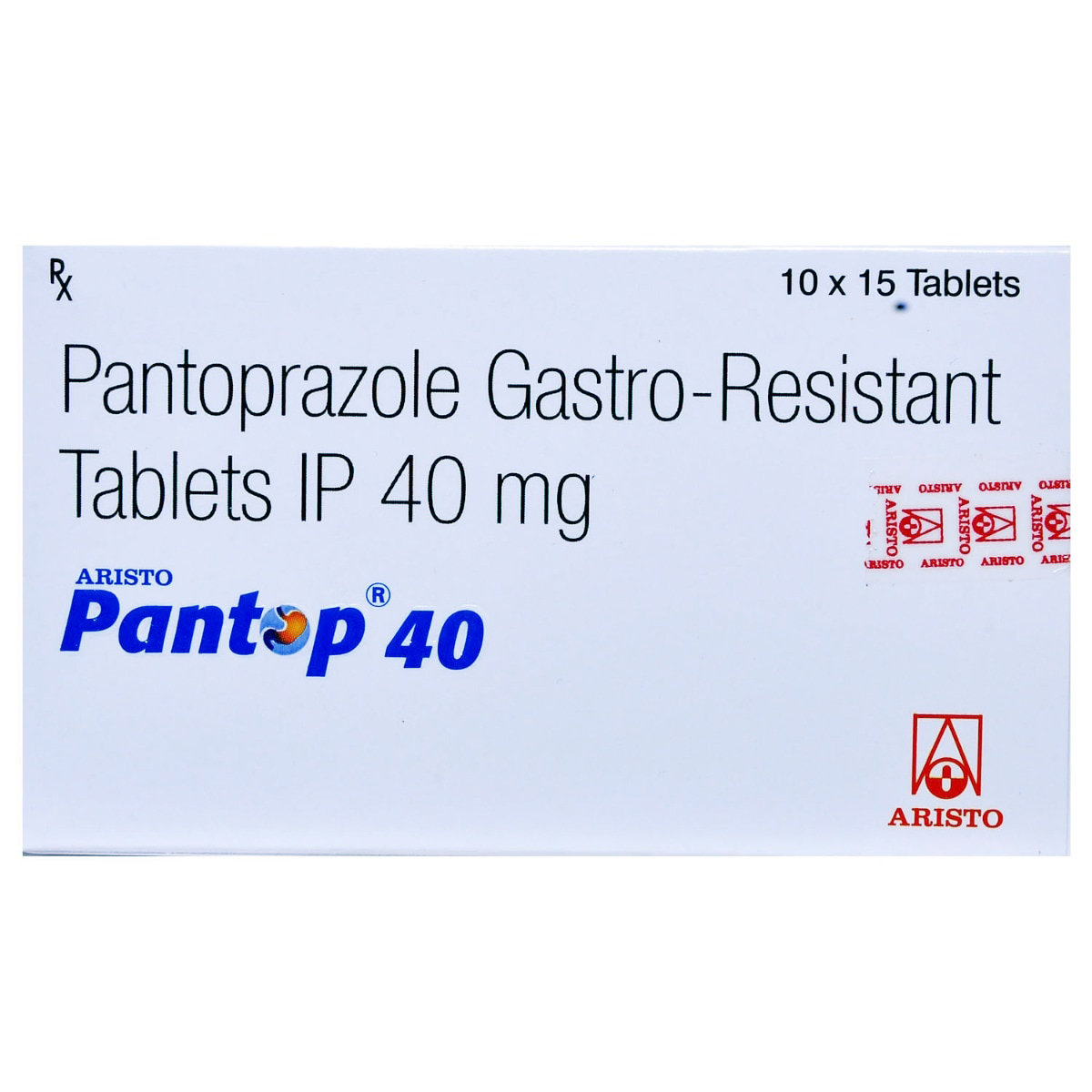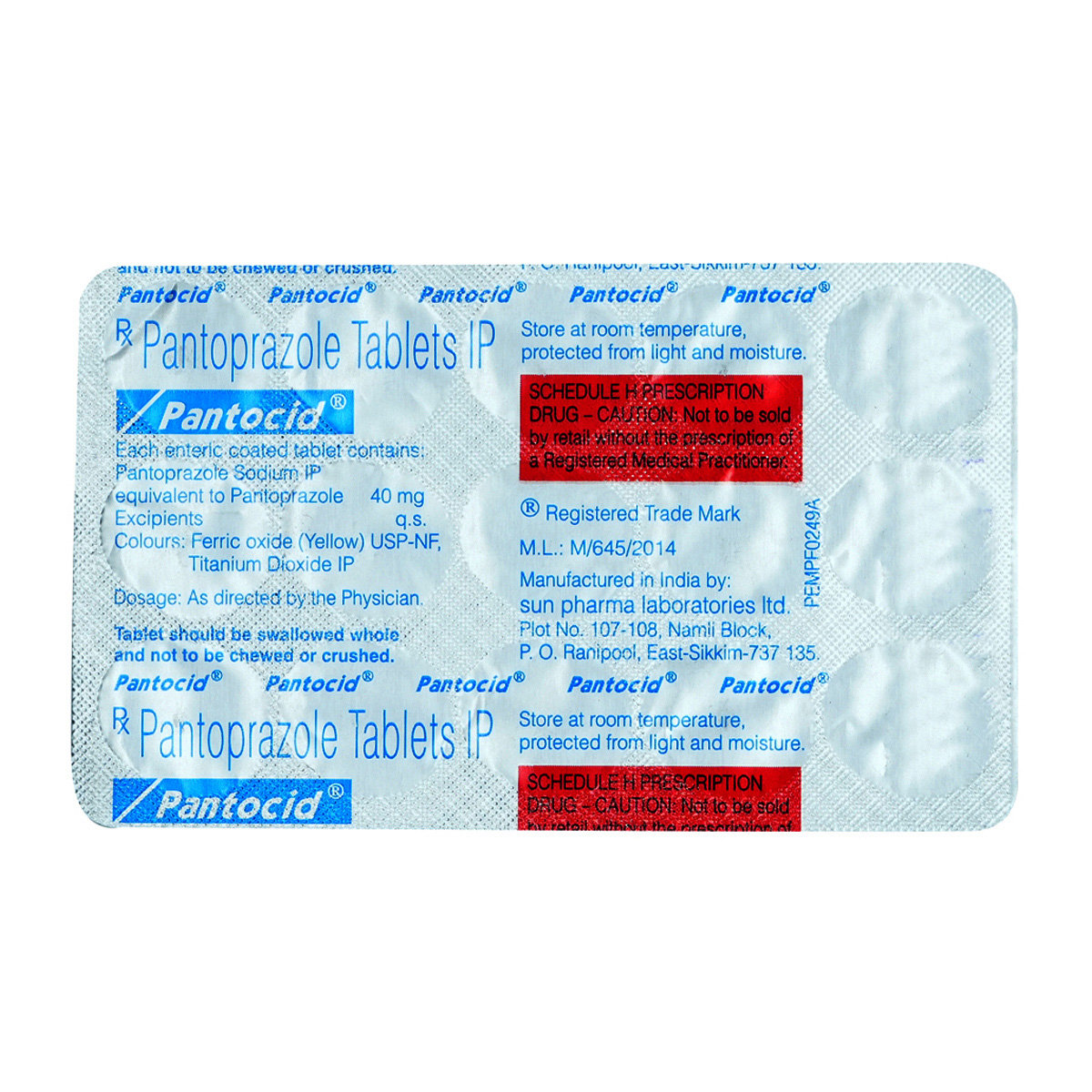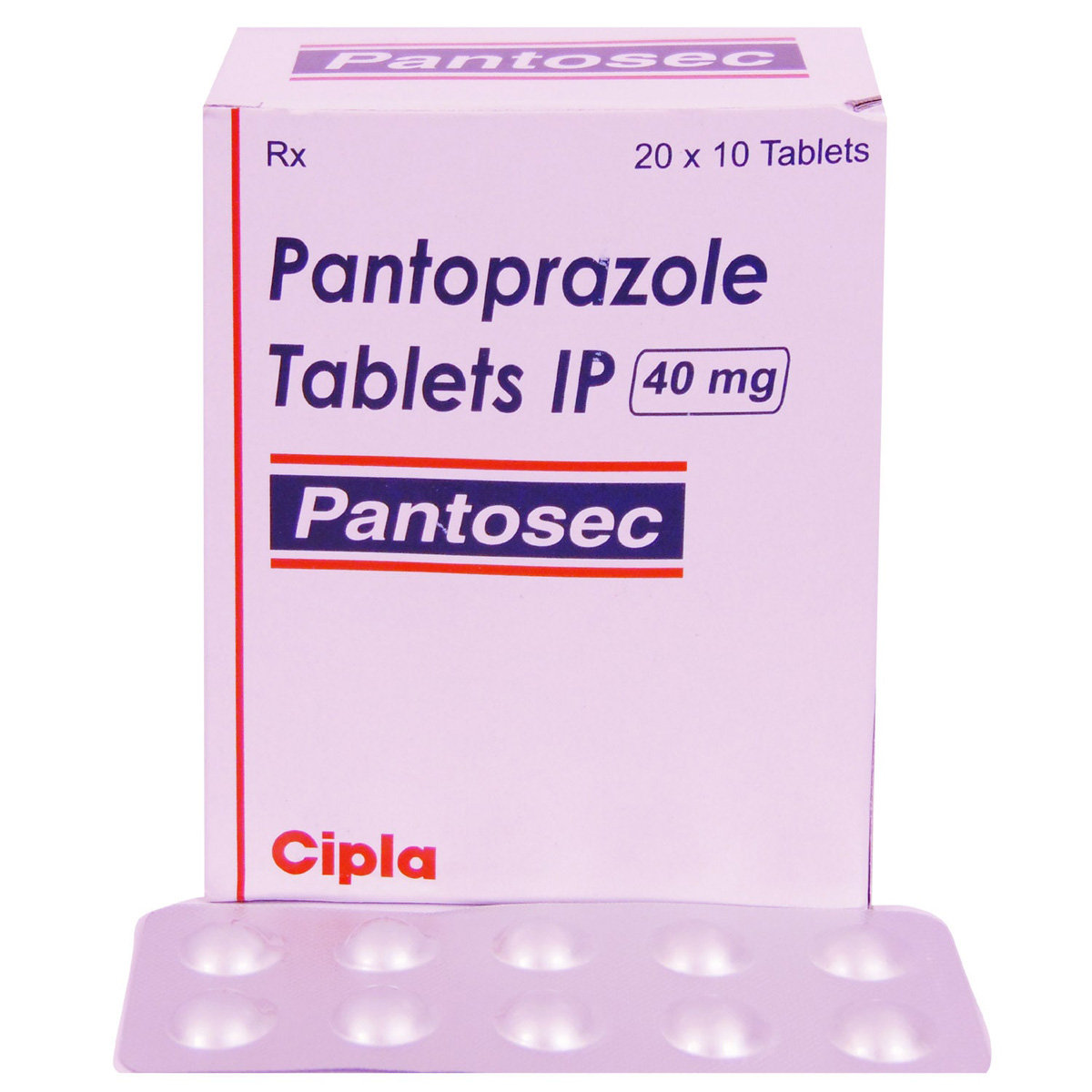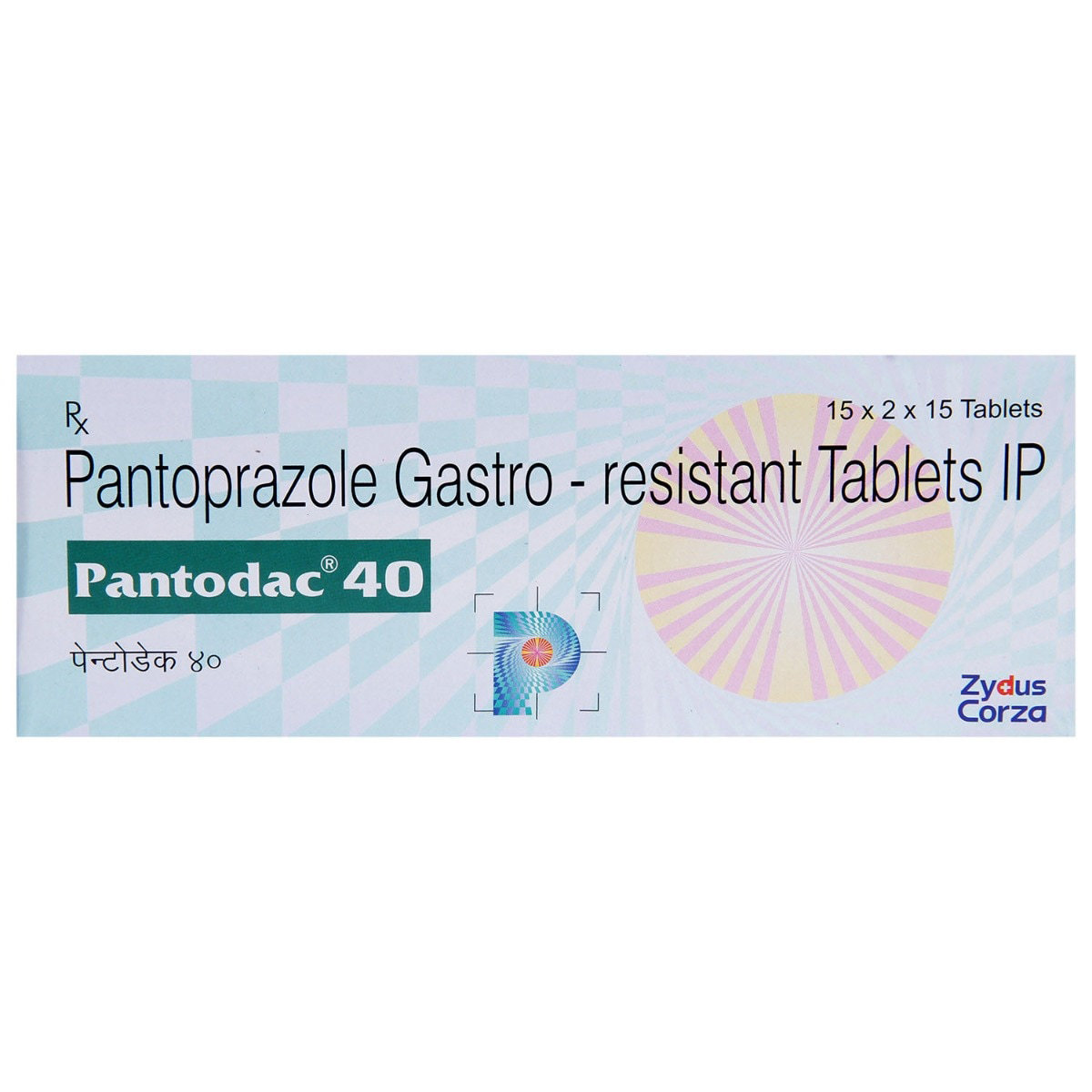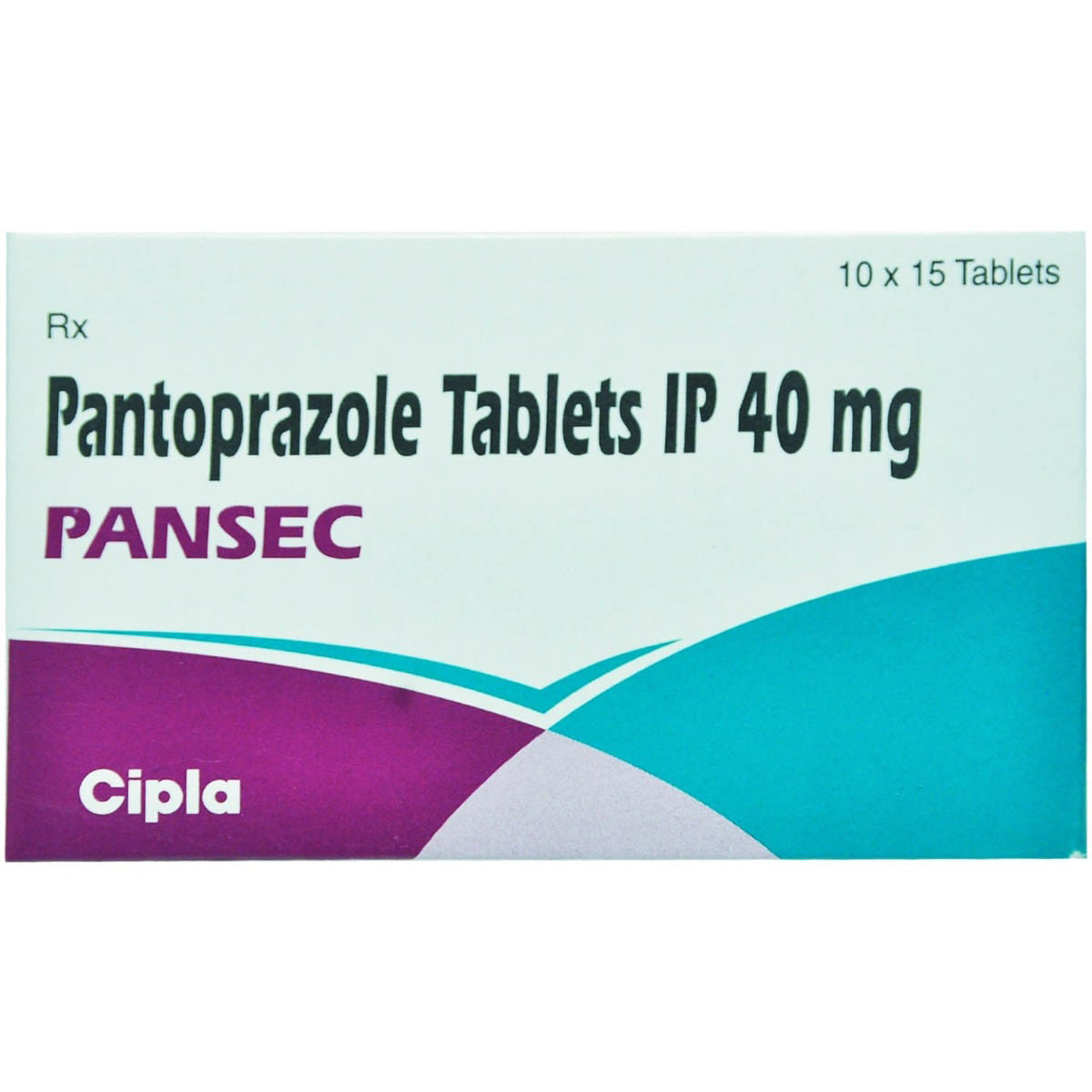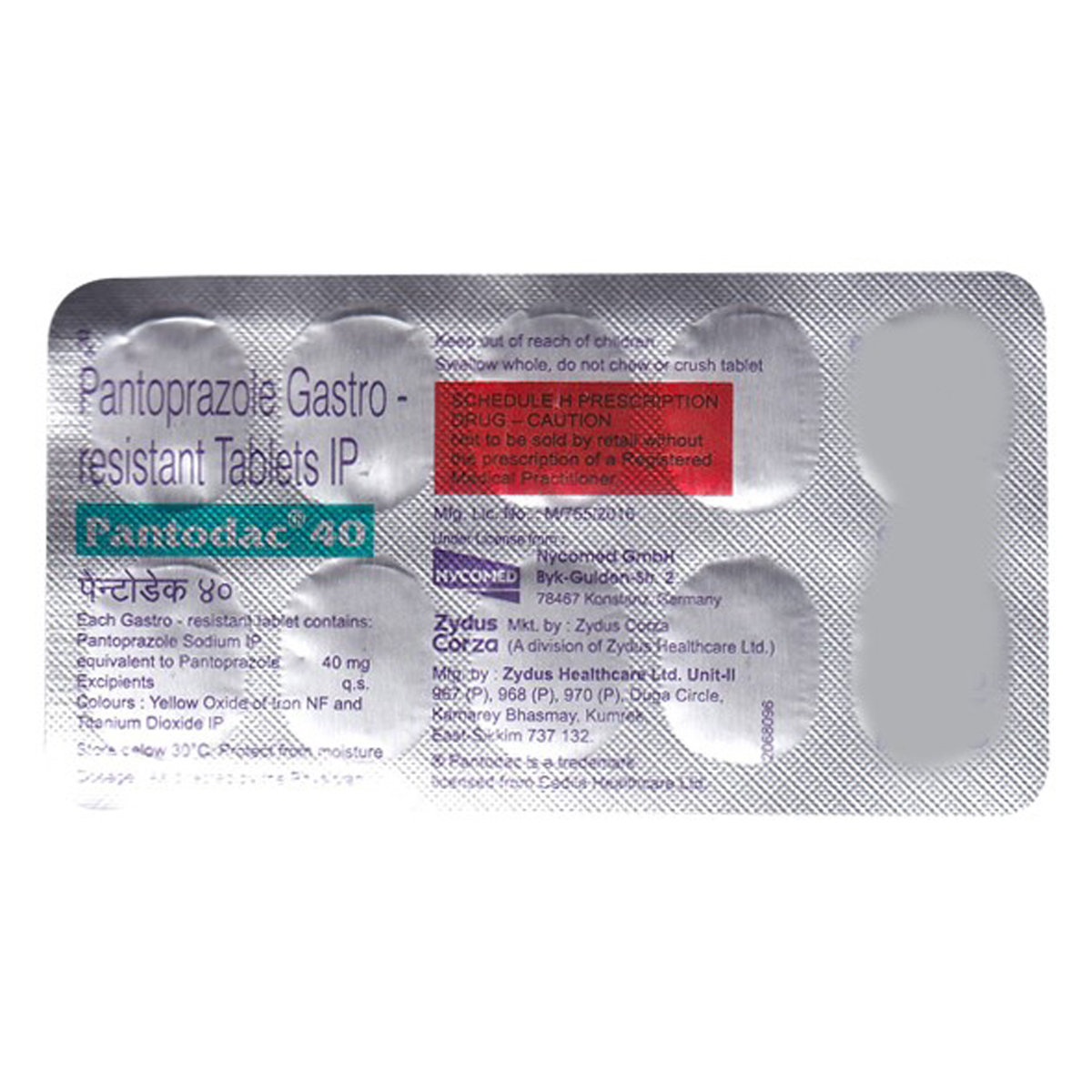Efroz-40 Tablet 10's
MRP ₹65
(Inclusive of all Taxes)
₹9.8 Cashback (15%)
Provide Delivery Location
Online payment accepted
 Prescription drug
Prescription drugWhats That
Composition :
Manufacturer/Marketer :
Consume Type :
Expires on or after :
Return Policy :
About Efroz-40 Tablet
Efroz-40 Tablet belongs to the class of drugs known as Proton pump inhibitor, which reduces the amount of acid your stomach makes. It treats gastroesophageal reflux disease (GERD), stomach ulcer, Zollinger Ellison syndrome (overproduction of acid due to pancreatic tumour), duodenal ulcer, gastric ulcer and Crohn’s Disease-associated Ulcers.
Efroz-40 Tablet helps in reducing stomach acid by blocking the actions of an enzyme (H+/K+ ATPase or gastric proton pump). This proton pump lies in the cells of the stomach wall and is responsible for the release of gastric acid secretion, damaging tissues in the food pipe, stomach and duodenum. Efroz-40 Tablet prevents the release of stomach acid and relieves symptoms of food pipe lining inflammation (esophagitis), gastroesophageal reflux disease (GERD), or heartburn.
Efroz-40 Tablet may have common side effects like headache, diarrhoea, nausea, abdominal pain, vomiting, flatulence, dizziness, and arthralgia (joint pain). These side effects are temporary and may be resolved after some time. However, if these side effects persist, please contact the doctor.
Efroz-40 Tablet is safe for pregnant and breastfeeding mothers but should be taken only after consulting a doctor. Tell your doctor if you have stomach or intestinal cancer, liver problems, are allergic to Efroz-40 Tablet or will have an endoscopy in the future. Prolonged intake of Efroz-40 Tablet may cause a deficiency of Vitamin B12 and low levels of calcium, magnesium and Vitamin D, leading to osteoporosis.
Uses of Efroz-40 Tablet
Directions for Use
Key Benefits
Efroz-40 Tablet is effective at healing erosive esophagitis (inflammation of food pipe), relieving symptoms of gastroesophageal reflux disease (heartburn), Zollinger-Ellison syndrome, duodenal ulcer, gastric ulcer and Crohn’s Disease-associated Ulcers. Efroz-40 Tablet works by irreversibly blocking the proton pump gate (which secretes stomach acid). It can be prescribed to all age groups, including special populations like the elderly, pregnant, lactating mothers, and kidney and liver disease patients.
Storage
- Hydrate your body: Drink enough water to prevent dehydration and headaches.
- Calm Your Mind: Deep breathing and meditation can help you relax and relieve stress.
- Rest and Recharge: Sleep for 7-8 hours to reduce headache triggers.
- Take rest: lie down in a quiet, dark environment.
- Cold or warm compresses can help reduce tension.
- Stay Upright: Maintain good posture to keep symptoms from getting worse.
- To treat headaches naturally, try acupuncture or massage therapy.
- Over-the-counter pain relievers include acetaminophen and ibuprofen.
- Prescription Assistance: Speak with your doctor about more substantial drug alternatives.
- Severe Headaches: Seek emergency medical assistance for sudden, severe headaches.
- Frequent Headaches: If you get reoccurring headaches, consult your doctor.
- Headaches with Symptoms: Seek medical attention if your headaches include fever, disorientation, or weakness.
- Inform Your Doctor: Notify your doctor immediately about your diarrhoea symptoms. This allows them to adjust your medication or provide guidance on managing side effects.
- Stay Hydrated: Drink plenty of fluids to replace lost water and electrolytes. Choose water, clear broth, and electrolyte-rich drinks. Avoid carbonated or caffeinated beverages to effectively rehydrate your body.
- Follow a Bland Diet: Eat easy-to-digest foods to help firm up your stool and settle your stomach. Try incorporating bananas, rice, applesauce, toast, plain crackers, and boiled vegetables into your diet.
- Avoid Trigger Foods: Steer clear of foods that can worsen diarrhoea, such as spicy, fatty, or greasy foods, high-fibre foods, and dairy products (especially if you're lactose intolerant).
- Practice Good Hygiene: Maintain good hygiene to prevent the spread of infection. To stay healthy, wash your hands frequently, clean and disinfect surfaces regularly, and avoid exchanging personal belongings with others.
- Take Anti-Diarrheal Medications: If your doctor advises, anti-diarrheal medications such as loperamide might help manage diarrhoea symptoms. Always follow your doctor's directions.
- Keep track of your diarrhoea symptoms. If they don't get better or worse or are accompanied by severe stomach pain, blood, or dehydration signs (like extreme thirst or dark urine), seek medical help.
- Inform your doctor about the nausea and discuss possible alternatives to the medication or adjustments to the dosage.
- Divide your daily food intake into smaller, more frequent meals to reduce nausea.
- Opt for bland, easily digestible foods like crackers, toast, plain rice, bananas, and applesauce.
- Avoid certain foods that can trigger nausea, such as fatty, greasy, spicy, and smelly foods.
- Drink plenty of fluids, such as water, clear broth, or electrolyte-rich beverages like coconut water or sports drinks.
- Use ginger (tea, ale, or candies) to help relieve nausea.
- Get adequate rest and also avoid strenuous activities that can worsen nausea.
- Talk to your doctor about taking anti-nausea medication if your nausea is severe.
- Record when your nausea occurs, what triggers it, and what provides relief to help you identify patterns and manage your symptoms more effectively.
- Preventing Vomiting (Before it Happens)
- Take medication exactly as prescribed by your doctor. This can help minimize side effects, including vomiting.
- Having a small meal before taking your medication can help reduce nausea and vomiting.
- Talk to your doctor about taking anti-nausea medication along with your prescribed medication.
- Managing Vomiting (If it Happens)
- Try taking ginger in the form of tea, ale, or candy to help alleviate nausea and vomiting.
- What to Do if Vomiting Persists
- Consult your doctor if vomiting continues or worsens, consult the doctor for guidance on adjusting your medication or additional treatment.
- Tell your doctor about your GAS symptoms. They may change your medication regimen or prescribe additional drugs to help you manage them.
- To manage GAS symptoms, eat a balanced diet of fibre, vegetables, and fruits.
- Drink enough water throughout the day to avoid constipation and treat GAS symptoms.
- Regular exercise like yoga and walking may help stimulate digestion and alleviate GAS symptoms.
- Take probiotics only if your doctor advises, as they may help alleviate GAS symptoms by promoting gut health.
- Take medication for GAS symptoms only if your doctor advises, as certain medications can interact with your existing prescriptions or worsen symptoms.
- If symptoms persist, worsen, or are accompanied by severe abdominal pain, vomiting, or bleeding, seek immediate medical attention.
- Inform your doctor about dizziness symptoms. They may adjust your medication regimen or prescribe additional medications to manage symptoms.
- Follow your doctor's instructions for taking medication, and take it at the same time every day to minimize dizziness.
- When standing up, do so slowly and carefully to avoid sudden dizziness.
- Avoid making sudden movements, such as turning or bending quickly, which can exacerbate dizziness.
- Drink plenty of water throughout the day to stay hydrated and help alleviate dizziness symptoms.
- If you're feeling dizzy, sit or lie down and rest until the dizziness passes.
- Track when dizziness occurs and any factors that may trigger it, and share this information with your doctor to help manage symptoms.
- Please inform your doctor about joint pain symptoms, as they may adjust your medication regimen or prescribe additional medications to manage symptoms.
- Your doctor may prescribe common pain relievers if necessary to treat joint discomfort.
- Maintaining a healthy lifestyle is key to relieving joint discomfort. Regular exercise, such as low-impact sports like walking, cycling, or swimming, should be combined with a well-balanced diet. Aim for 7-8 hours of sleep per night to assist your body in repairing and rebuilding tissue.
- Applying heat or cold packs to the affected joint can help reduce pain and inflammation.
- Please track when joint pain occurs and any factors that may trigger it, and share this information with your doctor to help manage symptoms.
- If your joint pain is severe or prolonged, consult a doctor to rule out any underlying disorders that may require treatment.
Drug Warnings
You should avoid taking Efroz-40 Tablet if you are allergic to Efroz-40 Tablet or proton pump inhibitors, have gastric cancer, liver disease, low magnesium level (osteoporosis), low vitamin B12, pregnant or planning for pregnancy and breastfeeding mothers. Efroz-40 Tablet may interact with a blood thinner (warfarin), antifungal (ketoconazole), anti-HIV drug (atazanavir, nelfinavir), iron supplements, ampicillin antibiotic, anti-cancer drug (methotrexate). Let your doctor know if you are taking these medicines. Prolonged intake of Efroz-40 Tablet may cause lupus erythematosus (an inflammatory condition in which the immune system attacks its own tissues), Vitamin B12, and magnesium deficiency. Intake of Efroz-40 Tablet may mask the symptoms of gastric cancer, so if you have any severe stomach pain or gastric bleeding (blood in mucous or stool), immediately consult the doctor.
Drug-Drug Interactions
Drug-Drug Interactions
Login/Sign Up
Co-administration of Rilpivirine is taken with Efroz-40 Tablet, can decrease the absorption and blood levels of Rilpivirine and make the medication less effective.
How to manage the interaction:
Taking Efroz-40 Tablet with Rilpivirine can lead to an interaction, please consult a doctor before taking it. Do not stop using any medications without talking to a doctor.
Taking Efroz-40 Tablet with Pazopanib may reduce the effectiveness of pazopanib.
How to manage the interaction:
If you are supposed to take Efroz-40 Tablet and Pazopanib together, but can be taken together if prescribed by a doctor. However, if you experience any unusual symptoms contact your doctor immediately. Do not stop using any medications without first talking to your doctor.
Co-administration of Efroz-40 Tablet reduces stomach acid, decreases the absorption and blood levels of Atazanavir, and reduces its effectiveness.
How to manage the interaction:
Taking Efroz-40 Tablet with Atazanavir together can possibly result in an interaction, but it can be taken if a doctor has advised it. A doctor can recommend other options that won't cause any problems when taken together. Do not stop using any medications without a doctor's advice.
Taking Dasatinib with Efroz-40 Tablet may decrease the blood levels of Dasatinib and reduce its effectiveness.
How to manage the interaction:
Taking Efroz-40 Tablet with Dasatinib together can result in an interaction, but it can be taken if a doctor has advised it. In case of any unusual side effects, contact a doctor. Do not stop using any medications without a doctor's advice.
Co-administration of Methotrexate with Efroz-40 Tablet can increase the levels and side effects of Methotrexate.
How to manage the interaction:
Although there is a possible interaction between Efroz-40 Tablet and methotrexate, you can take these medicines together if prescribed by a doctor. However, if you experience any symptoms such as nausea, vomiting, loss of appetite, increased or decreased urination, sudden weight gain or weight loss, fluid retention, swelling, shortness of breath, tiredness, weakness, or dizziness, consult a doctor. Do not stop using any medications without consulting a doctor.
Taking Efroz-40 Tablet can make Dacomitinib less effective by reducing its absorption in the body.
How to manage the interaction:
Taking Efroz-40 Tablet with Dacomitinib together can possibly result in an interaction, but it can be taken if a doctor has advised it. A doctor can recommend other options that won't cause any problems when taken together. Do not stop using any medications without a doctor's advice.
Taking Nelfinavir with Efroz-40 Tablet may decrease the absorption and blood levels of Nelfinavir and reduce its effectiveness.
How to manage the interaction:
Taking Efroz-40 Tablet with Nelfinavir together can possibly result in an interaction, but it can be taken if a doctor has advised it. A doctor can recommend other options that won't cause any problems when taken together. Do not stop using any medications without a doctor's advice.
Taking Erlotinib with Efroz-40 Tablet may interfere with the absorption of Erlotinib into the bloodstream, and reduce its effectiveness.
How to manage the interaction:
Taking Efroz-40 Tablet with Erlotinib together can possibly result in an interaction, but it can be taken if a doctor has advised it. A doctor can recommend other options that won't cause any problems when taken together. Do not stop using any medications without a doctor's advice.
Taking Gefitinib with Efroz-40 Tablet reduces the acidity level in the stomach and may interfere with the absorption of Gefitinib and reduce its effectiveness.
How to manage the interaction:
Taking Efroz-40 Tablet with Gefitinib together can possibly result in an interaction, it can be taken if your doctor has advised it. You are recommended to take gefitinib 12 hours before or 12 hours after Efroz-40 Tablet to help minimize the impact of the interaction. Do not discontinue the medication without consulting a doctor.
Drug-Food Interactions
Drug-Food Interactions
Login/Sign Up
Diet & Lifestyle Advise
- Avoid intake of acid or heartburn-triggering foods or drinks like onions, peppermint, chocolate, caffeinated beverages, citrus fruits or juices, tomatoes and high-fat and spicy foods.
- Before going to sleep, raise your bedhead so that your head and chest are higher than your feet. Do not use piles of pillows; one raised block is fine. This will not allow the stomach acid to backflow through your food pipe.
- Avoid taking alcohol and smoking cigarettes. Alcohol can raise the level of production of stomach acid, leading to heartburn and acid reflux. On the other hand, nicotine smoking damages the valve (sphincter), preventing the backflow of the stomach acid into the food pipe.
- Include high fibre-containing foods, berries, cherries, leafy green veggies (kale, spinach) and black peppers in your meal. These foods are full of antioxidants, calcium and vitamin B12 that can help cope with the long-term effects of the medicine. Fermented dairy products like miso, sauerkraut, and kimchi contain probiotics which help in the prevention of excess stomach acid production. Cranberry juice can be beneficial for peptic ulcers and H. Pyroli infection.
- Avoid regular sitting continuously, as it can increase stomach acid production. Try to take a break of 5 minutes in 1 hour by brisk walking or stretching.
Side Effects of Efroz-40 Tablet
- Headache
- Diarrhoea
- Nausea
- Abdominal pain
- Vomiting
- Flatulence
- Dizziness
- Arthralgia (joint pain)
Habit Forming
Therapeutic Class
All Substitutes & Brand Comparisons
RX
Topp-40 Tablet 10's
Systopic Laboratories Pvt Ltd
₹28
(₹2.52 per unit)
56% CHEAPERRX
Pantakind Tablet 15's
Mankind Pharma Pvt Ltd
₹79
(₹4.75 per unit)
18% CHEAPERRX
Nupenta 40 Tablet 15's
Macleods Pharmaceuticals Ltd
₹85
(₹5.1 per unit)
12% CHEAPER
Author Details
We provide you with authentic, trustworthy and relevant information
Drug-Diseases Interactions
Drug-Diseases Interactions
Login/Sign Up
Use of proton pump inhibitors, particularly in hospitalised patients, may increase the incidence of Clostridium difficile-associated diarrhoea. Monitor closely. Prefer lower dose of PPI for short duration.
How to manage the interaction:
The doctor may recommend the lowest dose and shortest duration of Efroz-40 Tablet in hospitalized patients. Close monitoring is recommended in patients with diarrhoea and in those taking antibacterial agents.
FAQs
Prolonged intake of Efroz-40 Tablet may lead to atrophic gastritis (inflammation of stomach cells), Vitamin B12 deficiency and weakening of bones or osteoporosis (loss of calcium, magnesium and vitamin D). Your doctor may prescribe calcium, vitamin D or haemoglobin-enhancing medications to cope with long-term side effects.
No. Efroz-40 Tablet is not prescribed for stomach cancer. Do not take Efroz-40 Tablet until your doctor has prescribed you. Efroz-40 Tablet is only indicated for the treatment of hyperacidity, acid reflux symptoms (GERD), heartburn and Zollinger-Ellison syndrome.
No. Gas and acidity are two different common discomforts. Acidity is caused when improper functioning of the valve (sphincter) is located at the junction of the stomach and food pipe. As a result, stomach acid backflows and enters the upper part of the food pipe, causing heartburn. On the other hand, gas is the result of the digestion of food and drinks, eliminating gases like carbon dioxide, hydrogen, nitrogen, methane, etc., from the body.
Yes. Efroz-40 Tablet can alter certain medical tests like neuroendocrine tumours (secretin stimulation test) and urine screening tests for tetrahydrocannabinol (THC). So before undergoing such tests, contact your doctor.
Prolonged intake of Efroz-40 Tablet may weaken your bone and lower your haemoglobin level. Your doctor may prescribe you Vitamin B12 for enhancing haemoglobin and calcium/vitamin D/magnesium supplements for bone health.
No. Efroz-40 Tablet prevents excess production of stomach acid, causing acid reflux and heartburn. If blood is coming in your stool or mucous, immediately contact the doctor.
Drug-Drug Interactions Checker List
- CLOPIDOGREL
- WARFARIN
- KETOCONAZOLE
- VORICONAZOLE
- ITRACONAZOLE
- POSACONAZOLE
- ATAZANAVIR
- NELFINAVIR
- AMPICILLIN
- RIFAMPICIN
- DIGOXIN
- METHOTREXATE
Special Advise
- Individuals at risk for osteoporosis-related fractures should receive an adequate intake of calcium and vitamin D.
- Regular monitoring of vitamin B-12 is necessary, as it rarely causes vitamin B-12 deficiency. The risk is increased if they are taken every day for a long time.
- Efroz-40 Tablet may interfere with certain laboratory tests (including urine tests for a tetrahydrocannabinol-THC blood test to find certain tumors), possibly causing false test results. Make sure laboratory personnel and all your doctors know you are using Efroz-40 Tablet .
Disease/Condition Glossary
Normally, a thick mucous layer protects the stomach against its acid secretion. But, in the long run, it gets eroded by excessive stomach acid production, leading to complications like GERD, peptic ulcer, and Zollinger-Ellison syndrome. Gastroesophageal reflux disease (GERD) is a gastrointestinal disorder that occurs when stomach acid frequently flows back into the food pipe (esophagus). This backflow (acid reflux) irritates the food pipe and causes heartburn. On the other hand, peptic ulcer is a painful condition followed by the development of sores or ulcers in the stomach lining or duodenum (first part of the small intestine) (the duodenum). Zollinger-Ellison syndrome is a rare condition in which a gastrin-secreting tumor of the pancreas causes excessive acid production leading to peptic ulcers.

Have a query?
Alcohol
Safe if prescribed
Drinking alcohol with Efroz-40 Tablet may cause dehydration and elevate the level of stomach acid thereby decreasing its efficiency. So try to avoid, limit alcohol or contact doctor before intake of Efroz-40 Tablet .
Pregnancy
Consult your doctor
It is not known whether Efroz-40 Tablet affects the baby or not. So, contact a doctor before intake of Efroz-40 Tablet . Your doctor will weigh the benefits and potential risks before prescribing it.
Breast Feeding
Consult your doctor
Efroz-40 Tablet passes into the breast milk. However, no evidence of risk has been reported. Please consult your doctor before intake of Efroz-40 Tablet . Your doctor will weigh the benefits and potential risks before prescribing it.
Driving
Safe if prescribed
In some cases, Efroz-40 Tablet may cause dizziness, sleepiness, or blur vision. If you observe these symptoms, do not drive or operate heavy machinery until you feel better.
Liver
Consult your doctor
Efroz-40 Tablet should be taken with caution if you have liver problems.
Kidney
Consult your doctor
Patients with kidney disease should consult a doctor before taking Efroz-40 Tablet .
Children
Safe if prescribed
Efroz-40 Tablet is not be prescribed for children under 5 years of age. It is generally prescribed from 5-16 years of children for the treatment of gastroesophageal reflux disease (GERD).




